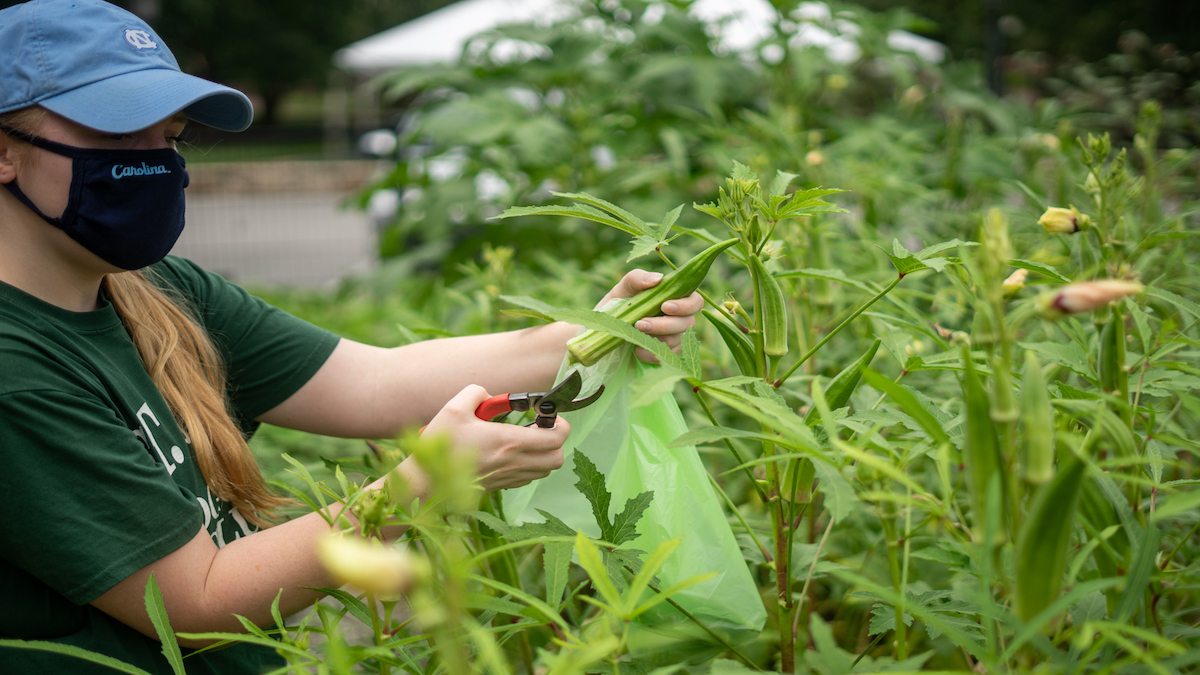The surprising benefits of caring for plants
Tending to indoor or outdoor plants offers numerous benefits, all of which can offset some of the stress, anxiety and isolation of the pandemic.

Are you a pet person or a plant person? That question might seem strange on the surface, but the pandemic has created two equally popular camps.
Faced with an inordinate amount of time indoors — and alone, in some instances — many people have responded by either adopting pets or purchasing plants. Both options have become so widespread that plant sales have increased tenfold, while certain shelters have started running out of animals to adopt, according to The Washington Post.
Given the time commitment and expense, not everyone can adopt a pet, which is why plants provide a comparable option — one with copious benefits.
Sally Haskett, a therapeutic horticulture educator at the North Carolina Botanical Garden, explains how working with plants provides emotional, physical, cognitive and even spiritual benefits. “It’s a basic human desire that we all have: to give,” Haskett says. “When that ability is taken away, we suffer on some level. A plant is a relatively non-demanding recipient of our efforts to give.”
Leslie Montana, a psychiatrist at Carolina’s Counseling and Psychological Services who often encourages students to volunteer at the North Carolina Botanical Garden’s Carolina Community Garden, echoes Haskett. “I think it brings out the nurturing tendencies we have, to take care of something, watch something grow,” she says.
Plants add a decorative element to the home, but their presence indoors goes much deeper. “The biologist E.O. Wilson coined this term ‘biophilia,’ or the concept that we all have a natural affinity to nature,” Montana explains. Simply put, being with nature makes humans happy. While that relationship is most often cultivated outdoors, having plants in the home can go a long way. “Being able to look at something green helps people to relax,” says Montana.
Being outside and working in a garden also has a social impact for those feeling the effects of pandemic-related isolation. Sophomore Leo McNicholas began volunteering in the Carolina Community Garden as part of a requirement for his first-year seminar on food politics, but he enjoyed it so much he kept going after the class ended.
What started as a pastime for the Tar Heel has become something of a lifeline during the pandemic. McNicholas lives alone, so volunteering in the garden became an opportunity to connect with others. “It’s nice to have time to interact safely with people,” he says.
Sophomore Janet Scott also volunteers in the Carolina Community Garden and found the social benefits to be a huge draw. “I almost always meet someone new. Sometimes we get really nice casual conversation, which during COVID is hard to come by,” she says.
At a time when screens occupy a great deal more of our time than they once did, working with plants offers an important break. In fact, a 2015 study found that working with plants helped reduce stress. “For many reasons, I think it’s something that can be very relaxing,” Montana says.
Both McNicholas and Scott echo that sentiment. “I always feel so much calmer from the moment I get to the garden and after I leave,” McNicholas explains. Scott says, “It’s the best way I have found to find time to breathe and find time to reset during the week.”
Whether you choose to bring a plant into your home or volunteer outside with a personal or community garden, like the Carolina Community Garden or North Carolina Botanical Garden’s other program, Edible Campus UNC, there are endless reasons why that decision can support mental health.
Beyond his work in the garden, McNicholas keeps a set of potted plants on his front porch. Over the winter, he switched to pansies and noticed a difference in his mood. “I think every time I see them, I get a lot happier,” he says.
Learn more about volunteering at the Carolina Community Garden or Edible Campus UNC.




